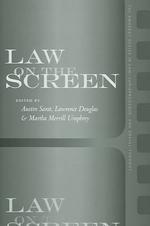This paper examines the importance of the de minimis doctrine in copyright law and these potential conclusions. It evaluates the history of application of the de minimis doctrine in copyright law, establishing that courts have long turned to the doctrine for guidance in copyright decisions. Further, it reviews legislative history to determine whether the application of the de minimis doctrine is indeed contrary to Congressional purposes, as recent decisions suggest, and if there may be sufficient justification for its abolition in connection with sound recordings only. It studies the effects of the doctrine's elimination, evaluating whether copyright law written without the understood de minimis doctrine would be a workable regime. Finally, the paper questions whether revocation of the de minimis doctrine helps or hinders the "Progress of Science and the useful Arts", asking whether policy dictates that the technological ease of copying should in fact lead to the less stringent application of copyright law to future works.
Aaron Schwabach has published "Harry Potter and the Unforgivable Curses: Norm-Formation, Inconsistancy, and the Rule of Law in the Wizarding World," again in the TJSL Legal Studies Research Paper series 05-13, and in volume 2005 of the Roger Williams Law Review. It is also downloadable from SSRN. Here is the abstract:
The astounding success of the Harry Potter series of children's fantasy novels is an unexpected cultural phenomenon, but a welcome one for lawyers and legal academics: Harry's story is a story about law, and about a society trying to establish a rule of law. There is law in every chapter, and on almost every page, of all six books. Sometimes the legal questions hang in the background, while at other times they are the focus of the story: We see numerous trials, and the author gives us statutes, regulations, school rules, and even international agreements to consider. Harry's world is administered, ineptly, by the Ministry of Magic. The Ministry of Magic's muddling misrule is not quite dictatorship, but it is not fair and just, either. Under the stress of the first war against Voldemort's Death Eaters the Ministry regime, like some Muggle governments in similar circumstances, adopted an ad hoc and inconsistent approach to justice. It imprisons people, and sometimes executes them, without a trial. It keeps careful tabs on law-abiding citizens, but is unable to track down terrorists. It reaches inaccurate results in about half of its criminal trials, in large part because defendants are not represented by counsel. This article attempts to examine the problems with the wizarding word's legal system by focusing on one particular problem: the Unforgivable Curses, three spells whose use on humans is punishable by life imprisonment. The three Unforgivable Curses are the Cruciatus Curse, which causes unbearable pain; the Imperius Curse, which allows the user to control the actions of the victim; and the Killing Curse, which causes instant death. There are inconsistencies both in the application of the law and in the selection of certain curses as Unforgivable. The choice to outlaw these three spells, and not others that may be even worse, reflects something about the values of both Harry's world and ours. The article explores the moral assumptions underlying this choice, examining the legal treatment of these spells under the Ministry's regime as well as under relevant British (Muggle) and international law.




